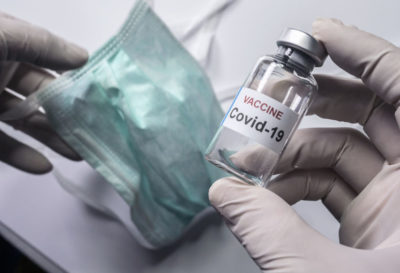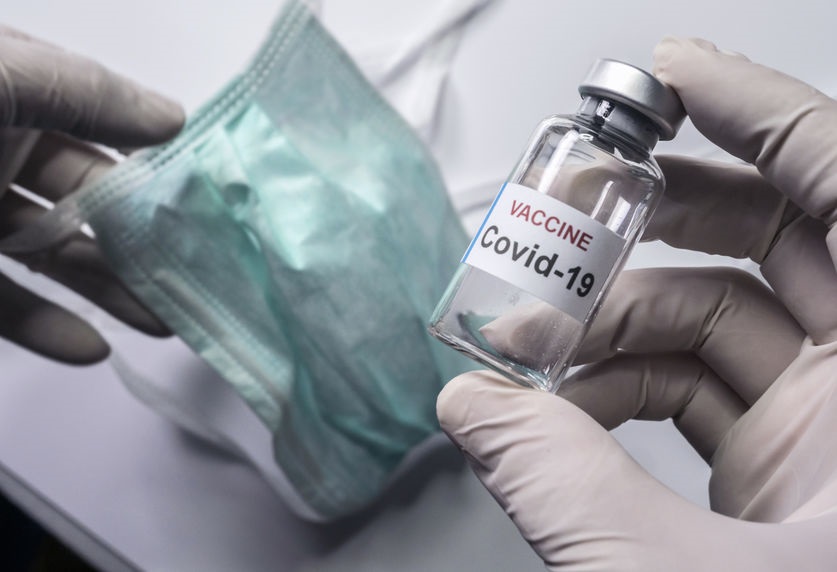As you may have seen posted on our social media, the EEOC issued updated guidance on December 16, 2020, on whether an employer can force the COVID vaccination on an employee. Can your boss force you to get the vaccine when it becomes available to the public or fire you if you don’t? Employers everywhere already require employees to be tested routinely and/or prove negative testing results for the coronavirus. According to recent EEOC Guidance, it looks like we are headed down a path of forced vaccinations.

EEOC Guidance states that “[I]f an employee cannot get vaccinated for Covid-19 because of a disability or sincerely held religious belief, practice or observance and there is no reasonable accommodation possible, then it would be lawful for the employer to exclude the employee
from the workplace.” However, the EEOC Guidance highlights concerns regarding employer liability which revolve around the “pre-screening questions” a patient must answer before receiving a vaccination. Do those pre-screening medical questions trigger violations under equal employment laws?
It is worth noting what EEOC Guidance makes clear—potential equal employment opportunity violations for pre-screening questions will only occur if the employer “administers the vaccine” and obtains or seeks genetic- and/or disability-related information. In other words, if the employer specifies the facility or location where the employee must receive the vaccine and/or receives genetic- or disability-related information from the pre-screening questions, then the employer will be responsible for the pre-screening questions. If the employer merely requires proof of coronavirus vaccination, allowing the employee to choose where to go, then the employer will not be held liable for any potentially violative pre-screening questions.
Possible ADA Violations
EEOC Guidance makes clear that an employer cannot ask questions that “elicit information about a disability,” protections given under the ADA—the Americans with Disabilities Act. If an employer wishes to mandate a vaccine, the way around an employer ADA violation, according to the EEOC Guidance, is that the employer does not dictate the facility where the employee is vaccinated. By requiring an employee to go to a specific vaccine center, the employer, in essence, has engaged in a “forced” pre-screening questionnaire from the that facility—violating ADA protections.
EEOC Guidance states that employers are permitted to require a negative COVID result if the employee has already contracted the coronavirus and wishes to return to work.
Possible GINA Violations
Under the Genetic Information Nondiscrimination Act—GINA, employers cannot ask an employee about the medical history of their family, thereby protecting employees from discrimination based on their genetic background. EEOC Guidance explains a potential violation of GINA could occur if the vaccine pre-screening questions contain genetic questions. Some of the COVID-19 vaccines use mRNA technology which means that the pre-screening questionnaire could contain questions regarding protected genetic information.
Possible Title VII Violations
Title VII of the Civil Rights Act states an employer must “reasonably accommodate” an employee’s sincerely held religious belief “unless it would pose an under hardship” on the employer. Interestingly and worth noting, is that the EEOC Guidance reasons that even if an employer cannot reasonably accommodate an employee’s refusal to be vaccinated, the employer cannot automatically terminate the worker as the employer “will need to determine if any other rights apply under the EEO laws or other federal, state and local authorities.”
By the way, who pays the price?
Many important questions still remain unanswered, especially, who pays for all of this? Will an employer be required to pay for the coronavirus vaccine or the time it takes an employee to get the vaccine? And what if the employee needs time off for illness due to the COVID-19 vaccination? Will the employee, employer or the government pay for these costs? Check our upcoming blogs for updates on these questions.
Summary
The recent EEOC Guidance could affect your employment. If you have questions about being required to take the coronavirus vaccine by your employer, or what happens if you refuse, we urge you to seek counsel from a qualified employment law attorney. Although the EEOC Guidance clarified that generally the federal discrimination laws do not prohibit employers from compelling employees to prove that they have been vaccinated as a condition of employment, there are exceptions to this general rule as it applies to disabled individuals and other individuals whose honestly held religious beliefs prevent them from being vaccinated.

